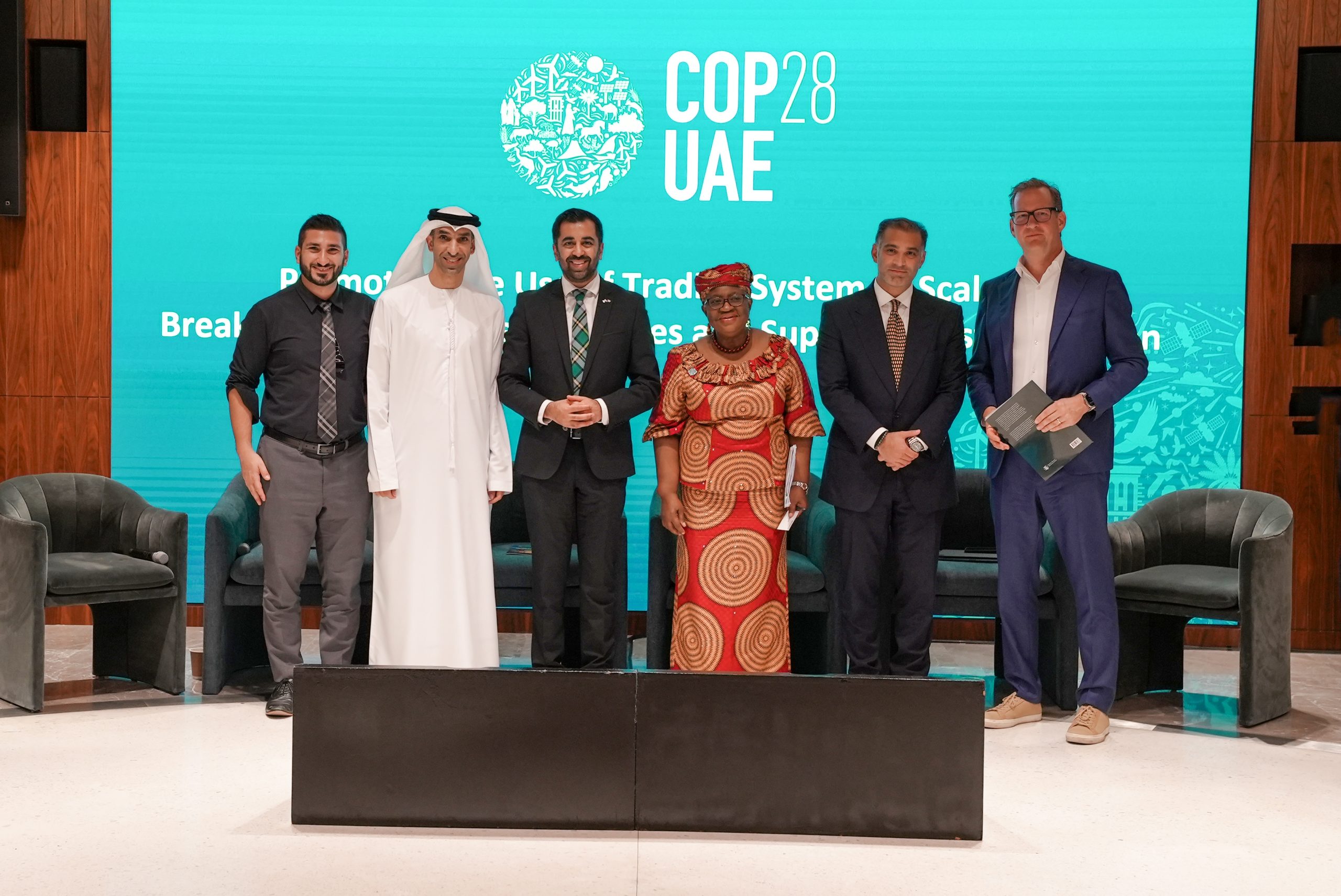COP28 is in full swing, and Food Systems finally have a seat at the table.
Our food system – the way we grow, process, transport, cook, dispose and waste food, accounts for roughly a third of all greenhouse gas emissions. What’s more, of those total food emissions, 60% comes from meat. There is therefore an obvious and transformational climate opportunity to replace meat with alternative proteins, yet for almost three decades, the final agreements coming out of the UN’s annual climate summits (COP) have ignored the impact of food on our climate.
This year, however, food has its own pavilion and an entire day dedicated to food, agriculture and water, as well as over 50+ discussions focused on the topic.
Blue Horizon CEO, Bjoern Witte had the honor of joining one such discussion. Together with the Director General of the World Trade Organization, the UAE Minister of State for Foreign Trade and the First Minister of Scotland, they discussed the importance of trading systems in scaling breakthrough climate technologies.
Breakthrough technologies, and especially food technologies, have historically struggled to compete in terms of unit economics with products that are already regulated. Pilot-scale foodtech startups for example, lack the industrial scale production facilities required to bring down unit cost economics and achieve price parity with their animal-counterparts.
In the next decade, the plant-based meat industry needs another $800 billion in infrastructure to fully industrialize. This is not the realm of venture capital, but the realm of banks, institutional investors, and governments.
But government support for breakthrough food technologies can go far beyond financing.
Governments can support in facilitating infrastructure set-up in a low-cost, regulatorily fast, and internationally harmonized manor, guaranteeing offtake agreements to lock in demand and price points, and advancing R&D through public-private partnerships. Through CEPAs, favourable tariffs and open IP, governments can speed up access to market and allow technology transfer with developing nations to help level the playing field.
And with global penetration comes impact. Scaling food technologies not only brings immense climate benefits, but can also provide developing countries with reliable, healthy, cost-effective protein sources, solving food insecurity and protein deficit issues in the midst of growing populations.
